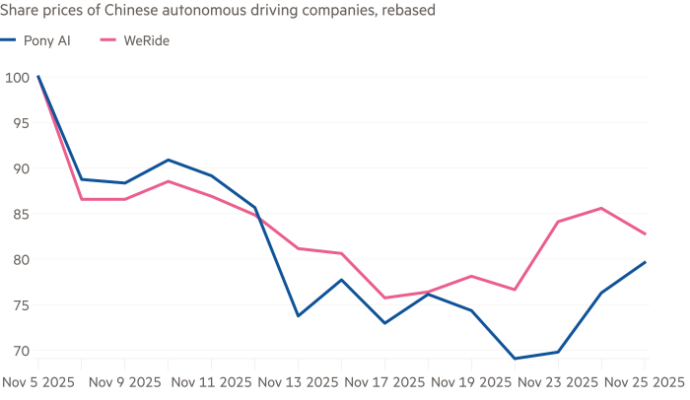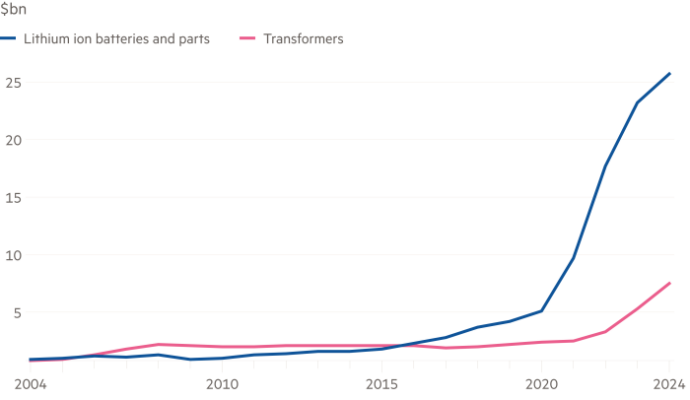Receive free Climate change updates
We’ll send you a myFT Daily Digest email rounding up the latest Climate change news every morning.
US climate envoy John Kerry said the world’s biggest polluters had agreed to resume stalled talks on global warming ahead of the UN COP28 summit, as Washington and Beijing try to re-engage after a year of bilateral tensions.
Speaking in Beijing at the end of a four-day trip during which he met senior Chinese leaders, Kerry said time was running out on climate change as countries including China and the US battle extreme weather events.
Kerry said the two sides had agreed to implement a previous undertaking, known as the “US-China joint statement addressing the climate crisis”, which laid out a diplomatic framework to engage on global warming.
“This is not a one-off meeting . . . we are already pinpointing the time for our next meeting,” Kerry said. Both sides had agreed to work to “guarantee a positive outcome” at the UN COP28 summit in Dubai later this year “where obviously the co-operation of China and the United States is critical”.
Kerry said that future talks would address methane emissions reductions and help the two sides develop new Paris Agreement-linked targets to be submitted in 2025.
The trip comes as Washington and Beijing try to re-establish diplomatic dialogue after a long hiatus worsened by an incident this year when a suspected Chinese spy balloon flew over the US.
Antony Blinken last month became the first secretary of state to visit Beijing since 2018 while this month Treasury secretary Janet Yellen met officials in the city.
Kerry has informally met his Chinese counterpart, Xie Zhenhua, on the sidelines of climate events. But this week was the first time he encountered Xi Jinping’s new leadership team, including second-ranked official premier Li Qiang, since China’s president started an unprecedented third five-year term in March.
There were signs that tensions were not far from the surface, however. The climate talks were first suspended last year by Beijing after US House Speaker Nancy Pelosi visited Taiwan.
On Tuesday, state media carried extensive coverage of Xi presiding over an ecological conference where he warned that China’s environmental policy “must be determined by the country itself, rather than be swayed by others”.
The comments were taken as a thinly veiled rebuke to any attempts by the US to pressure it on climate change or other issues.
“We all agree that nobody should be ‘quote’ dictated to and we’re not doing that. That’s why we had three days of intensive discussions,” Kerry said.
Li Shuo, a Beijing-based senior policy analyst with Greenpeace, said Kerry’s visit marked an important step in “what will be a complex rescue operation” for the US-China climate talks.
“Further engagements should help unlock more ambition in reducing coal consumption, cutting methane emissions, and beating a path towards a strong outcome at COP28. The key is for China to see these actions as serving its self-interest.”
Thom Woodroofe, fellow of the Asia Society’s China Climate Hub in Washington, said the visit was a “small win” for “the stabilisation of the US-China relationship”, but that “significant progress for the planet was forced into extra time by the Chinese”.
China recorded temperatures as high as 52.2C, in the north-western Xinjiang province this week, surpassing the previous 50.6C record. Earlier in the month, flooding in Chongqing and parts of south-western China and central Hunan displaced thousands and caused fatalities.
The US has similarly endured both a long-lasting heatwave affecting as many as 100mn people in the south, as well as flooding in the north-east, while southern Europe is struggling with extreme heat.
China emits 27 per cent of global carbon dioxide and a third of the world’s greenhouse gases, according to the World Bank, far more than the US and EU, although its emissions are lower on a per-capita basis. Xi pledged in 2020 that China would reach peak emissions by 2030 and be “carbon-neutral” by 2060.
Climate Capital

Where climate change meets business, markets and politics. Explore the FT’s coverage here.
Are you curious about the FT’s environmental sustainability commitments? Find out more about our science-based targets here


